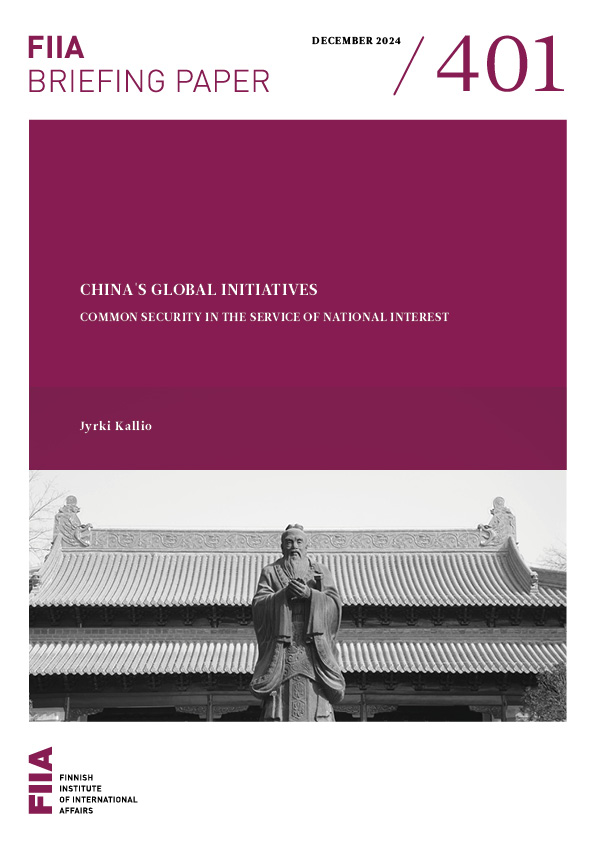Russia’s war of aggression against Ukraine has triggered a return to traditional policies of containment and deterrence, and a revival of European and transatlantic unity. This is only the beginning of a challenging but necessary journey for a revived Western world.
In response to Russia’s war of aggression against Ukraine, Western governments have enacted packages of economic sanctions, principally in the areas of finance, technology exports, and transportation. Additional measures include personal sanctions against key individuals in the Russian state apparatus and protective measures banning Russian state media to restrict the diffusion of hostile war propaganda. Similar coordinated measures have been taken by the European Union, the United Kingdom, the United States, Canada, and other like-minded nations. The measures constitute levels of economic, technological, and political containment of Russia not seen since the Cold War.
With respect to defence policy, several European governments have announced significant increases in defence spending. Germany and Italy, for many years laggards with respect to their 2014 NATO commitments to spend 2% of GDP on defence, have both announced that they will now implement them. Poland, long respected for fulfilling the 2% promise, will now move towards spending 3% of GDP on defence and increasing the size of its armed forces. In the NATO context, allies are strengthening their deterrence and defence posture on the Alliance’s Eastern Flank with the creation of new battlegroups. These decisions come in addition to increased US force presence in the region. The decisions mark the emergence of a quantitatively significant deterrence and defence posture on the Eastern Flank.
As Western governments develop policy responses at a fast pace, it is useful to formulate certain guiding considerations to support the emergence of a more structured strategy.
The first key consideration concerns the resolve of Western governments to engage in armed conflict against the Russian Federation, should the latter attack a NATO ally or an EU member state. For the first time since 1991, national political elites have to give serious consideration to scenarios of large-scale, high-intensity warfare against a nuclear-armed aggressor. Political leaders will have to spend time developing the mental and moral strength required to take large-scale, far-reaching life-and-death decisions in wartime. Crucially, new thinking is required on elementary aspects of warfare which Western decision-makers are traditionally not comfortable with, such as surprise, deception, aggressiveness, and unpredictability. This is not to say that stability and escalation control are no longer desirable. Rather, I argue for a mental adaptation to the reality of a large nuclear-armed state that uses reckless aggression, nuclear threats, and considerable levels of deception and risk-taking. Deterring and especially defeating an armed attack from such an actor requires new or revised mental and moral maps to ensure that Europe may continue to be both free and at peace. This consideration, as it pertains to political will and priority setting, sits atop more specific defence policy decisions, such as defence spending, capability targets, or readiness levels.
The second key consideration pertains to geoeconomics. Responses to Russia’s war against Ukraine were subdued and somewhat cynical on the part of two major non-Western powers, namely China and India. Indeed, Russia’s strategic calculus as it launched its aggression seemed very much to rely on both these powers remaining fully available as strategic and economic partners, while expecting a degree of rupture in relations with the Western world. Effectively, it is Russia – not China or India – that has thrown down the gauntlet to an unprepared Western world. While India may pursue some new form of non-alignment with quite limited great-power ambitions, the challenges that China poses to Western interests are increasingly clear. Any Chinese support for Russia’s current war against Ukraine, and more broadly towards Russia’s economic and military capabilities, is a direct threat to European and transatlantic security. As Europe and North America are drawn into containing and deterring Russia, the need to do likewise with China may follow. Absent a substantial and verifiable change in China’s foreign policy, the Western world will, once again, face enmity and strategic tension from both Russia and China.
The third key consideration concerns technology. Prior to the current conflict, major powers had identified a set of emerging and disruptive technologies, including artificial intelligence and quantum technologies, as crucial to both future prosperity and future military capabilities. Western sanctions against the Russian Federation include export controls targeting these and other technologies. These measures should also be viewed in the context of policies to mitigate technology transfers from the United States to China. Western nations should view any further erosion of their remaining technological edge over Russia or China with an increasing sense of alarm and urgency. As a result, attempts at technological containment of both Russia and China must deepen. This will pose challenges to both governments and industry across the Western world, in terms of policy instruments – such as export controls and foreign investment screening – and corporate strategies in an abruptly fragmented global market.
In conclusion, I propose to view recent developments as an emerging Western deterrence and containment strategy against major nuclear-armed state adversaries. I advocate an evolution and maturation of these policy decisions based on the key considerations above, namely military resolve, geoeconomics, and technological containment.








